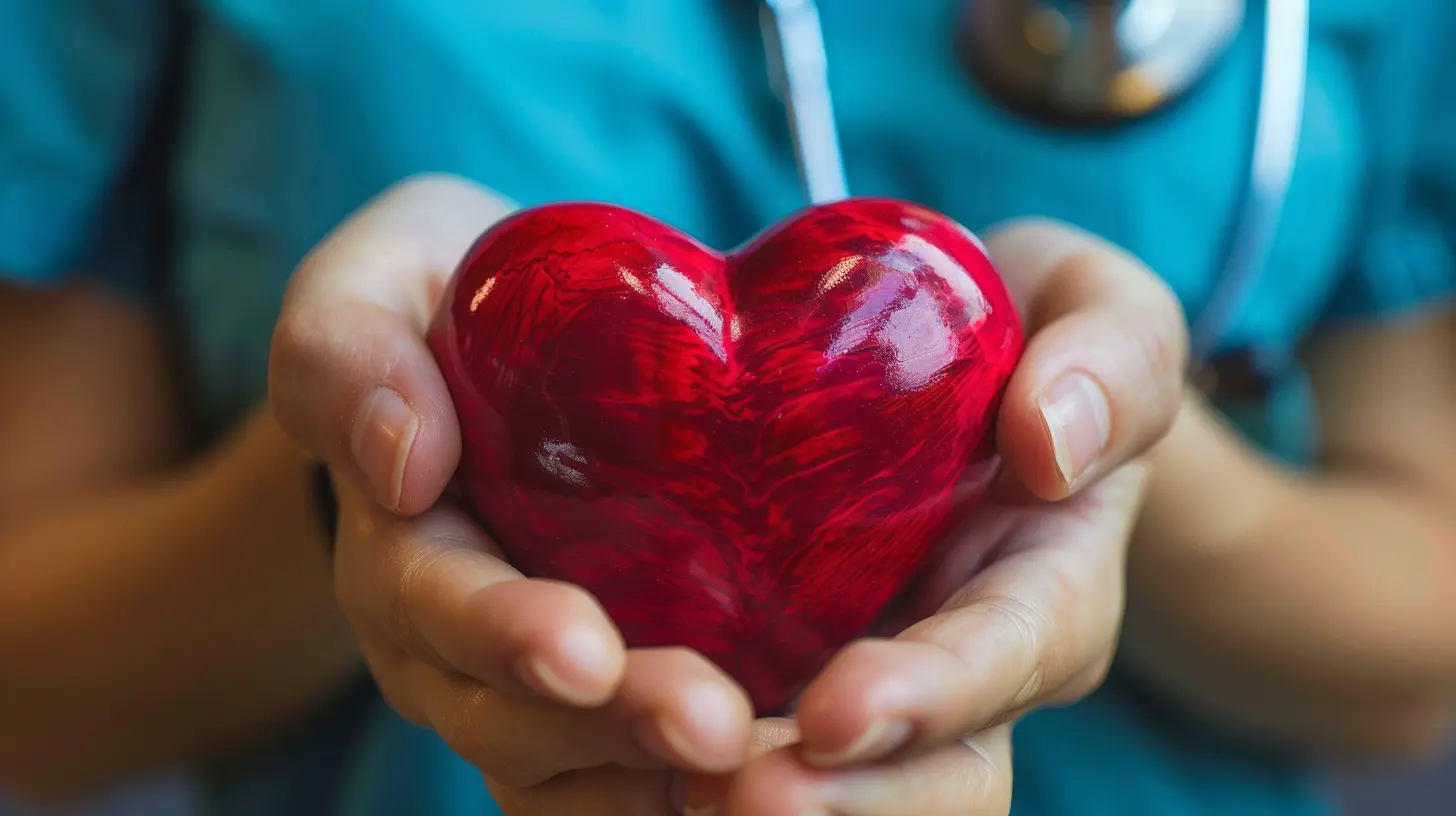Debunking Common Myths About Heart Health
5 May 2025
Let’s get one thing straight: when it comes to heart health, there’s a lot of bad advice floating around. Some of it sounds convincing, and some of it might even come from well-meaning friends or family. But just because something is said often doesn’t make it true.
So today, we’re going to take a magnifying glass to those long-standing heart health myths and bust them wide open.
Are you ready to clear the confusion—and maybe even save a life (maybe even your own) along the way?
Myth #1: “If You Don’t Have Chest Pain, Your Heart’s Fine”
Let’s kick this off with one of the most dangerous misconceptions.We’ve all seen the movie scene: someone clutching their chest, gasping, and falling to the floor. But heart problems aren’t always that dramatic. In fact, many people—especially women—experience heart attacks without any chest pain at all.
They might feel fatigue, nausea, light-headedness, even jaw or back pain. Sounds vague, right? That’s the problem.
Heart disease can be a silent killer. Waiting for a punch-to-the-chest moment could mean waiting too long.
> Bottom line: Chest pain is not the only warning signal. Pay attention to subtle changes in your body.
Myth #2: “Heart Disease Is a Man’s Problem”
Oh, boy. This one just refuses to die.Yes, it’s true that men often develop heart disease earlier. But heart disease is actually the leading cause of death for women too. The difference? Women's symptoms are often less obvious and can be misdiagnosed—or overlooked entirely.
In fact, women are more likely to die within a year of their first heart attack than men. Ouch, right?
Let’s stop labeling heart disease as a “man’s disease.” It’s coming for both genders.
> Quick tip: Ladies, don’t brush off weird symptoms. If something feels off, it probably is.
Myth #3: “I’m Thin, So I Don’t Have to Worry About My Heart”
This one is sneaky—and completely false.Sure, being overweight increases your risk for heart disease. But being thin doesn't give you a free pass. You can be slim and have high cholesterol, high blood pressure, or an unhealthy diet.
It’s like assuming a new car doesn’t need maintenance just because it looks good on the outside.
> Real talk: A healthy weight is helpful, but it’s not the only piece of the puzzle.
Myth #4: “Heart Disease Runs in My Family, So It’s Inevitable”
Let’s be real: genetics do play a role in heart health. But they’re not your destiny.Your lifestyle has a massive impact. We’re talking about your diet, exercise habits, sleep, stress levels, and whether or not you smoke. These factors can either amplify or mute your genetic risks.
Think of your genes as a loaded gun. Your lifestyle pulls the trigger.
> Truth bomb: You can’t choose your genes, but you can choose your habits.
Myth #5: “I Take Cholesterol Medication, So I Can Eat Whatever I Want”
Nice try. 😉Medications help, no doubt. But they’re not magical shields that cancel out every cheeseburger you eat.
Cholesterol meds like statins work best when combined with a heart-healthy lifestyle. If you’re treating meds like a free pass to skip salads forever, you’re not doing yourself any favors.
> Reality check: Medication is part of the toolbox—not the one-and-only fix.
Myth #6: “I’m Too Young to Worry About Heart Disease”
Heart disease doesn’t care how many candles are on your birthday cake.More and more younger adults are getting diagnosed with high blood pressure, type 2 diabetes, and high cholesterol—all of which are major red flags for heart problems later on.
And here’s the kicker: most heart damage happens gradually, over years. By the time you’re “old enough” to worry, damage might already be done.
> Mental note: Start building good habits now. Your future heart will thank you.
Myth #7: “If I Exercise, I Can Eat Whatever I Want”
We all wish this was true, don’t we?Exercise is amazing for your heart—no arguments there. It helps lower blood pressure, reduce bad cholesterol, and strengthen the heart muscle itself. But here’s the thing: it doesn’t erase a junk-filled diet.
You can’t out-train a bad plate.
Nutrition matters. A lot. Especially when it comes to heart health.
> Heart tip: Think of food and exercise as a power duo. Batman and Robin. Peanut butter and jelly. You need both.
Myth #8: “Heart Disease Means You Can’t Live a Normal Life”
This one can be disheartening (pun totally intended). But guess what? Being diagnosed with heart disease doesn’t mean life is over.Yes, you’ll need to make changes. Yes, you’ll have to be more mindful. But millions of people live long, full, happy lives with heart disease—especially when they take action early.
In fact, a diagnosis can be the wake-up call that leads to lasting transformation.
> Inspiration boost: Heart disease is serious, but it’s not a life sentence. You’ve got this.
Myth #9: “All Fats Are Bad for Your Heart”
Remember when fat was the enemy of the decade?Let’s clear this up once and for all: not all fats are created equal.
Trans fats? Terrible. Saturated fats? Tricky. But monounsaturated and polyunsaturated fats? These guys are your heart’s BFFs.
Think olive oil, avocados, nuts, and fatty fish like salmon. These healthy fats can actually lower bad cholesterol and reduce inflammation.
> Nutrition hack: Don’t fear fat—just choose the right kind.
Myth #10: “Taking Supplements Will Prevent Heart Disease”
Wouldn’t it be nice if popping a pill could keep your heart in tip-top shape?Unfortunately, most supplements don’t live up to the hype. Some may help under specific conditions (like omega-3s for high triglycerides), but there’s no miracle supplement that replaces healthy habits.
And let’s not forget: some supplements can interact with medications or cause side effects.
> Pro tip: Don’t rely on supplements. Get your nutrients from real, whole food whenever possible.
Bonus Myth: “Stress Is Just a Mental Thing—It Doesn’t Affect the Heart”
Time to shine the spotlight on an underdog: chronic stress.Stress doesn’t just mess with your mind—it messes with your body, too. It can raise your blood pressure, spike your cortisol levels, worsen cholesterol, and even lead to overeating or smoking.
Long-term stress is like constantly revving your engine. Eventually, something’s going to break down.
> Heart helper: Find stress relief that works for you—whether that’s deep breathing, yoga, journaling, or just stepping away from your phone for a while.
So, What Really Works for Heart Health?
With all the misinformation out there, let’s bring it back to the basics. What does actually support a healthy heart?Here’s your cheat sheet:
- Eat a balanced diet filled with whole grains, veggies, fruits, lean proteins, and healthy fats.
- Get moving—aim for at least 150 minutes of moderate exercise a week.
- Quit smoking (or never start).
- Limit alcohol, sugar, and processed foods.
- Stay on top of your numbers—cholesterol, blood pressure, blood sugar, and BMI.
- Sleep well. Your heart needs rest, too.
- Manage stress before it manages you.
No gimmicks. No overnight fixes. Just simple, consistent habits.
Final Thoughts: Truth Is the Best Medicine
Heart health is no joke. Yet time and time again, we let myths and half-truths guide our decisions. Why? Maybe it feels easier. Maybe it’s what we’ve always heard. Or maybe we just never knew better.But now you do.
So next time someone says, “Oh, you’re too young to have heart issues,” or “You don’t need to worry if you're not overweight,” feel free to share a little truth with them. You might even help save a life.
And hey—your heart works hard for you every single day. Don’t you think it’s time to return the favor?
all images in this post were generated using AI tools
Category:
Heart HealthAuthor:

Eileen Wood
Discussion
rate this article
4 comments
Thalyn King
This article does a fantastic job of clarifying heart health misconceptions! It's crucial to separate fact from fiction, and your insights will empower many readers to take informed steps toward a healthier heart. Thank you for sharing this valuable information!
May 20, 2025 at 2:20 PM

Eileen Wood
Thank you so much for your kind words! I'm glad you found the article helpful in clarifying heart health misconceptions. Your support means a lot!
Mariana Daniels
Essential insights help clarify heart health misconceptions; knowledge empowers prevention.
May 12, 2025 at 2:18 AM

Eileen Wood
Thank you! I'm glad you found the insights valuable in clarifying misconceptions about heart health. Knowledge truly is key to prevention!
Weston Torres
Heart health misconceptions can obscure vital truths. Understanding the interplay of genetics, lifestyle, and emotional well-being is essential; knowledge empowers us to make informed choices and nurture our hearts for life.
May 9, 2025 at 3:34 PM

Eileen Wood
Thank you for your insightful comment! Understanding heart health's complexities is crucial for making informed choices and fostering overall well-being.
Elijah McFarlane
This article brilliantly dismantles pervasive misconceptions surrounding heart health. Understanding the facts is crucial for making informed lifestyle choices. Embrace the knowledge shared here to prioritize your heart health—it's time to take charge of your well-being!
May 8, 2025 at 4:34 AM

Eileen Wood
Thank you for your insightful comment! I'm glad you found the article helpful in clarifying important heart health facts. Prioritizing our heart health is indeed vital!



